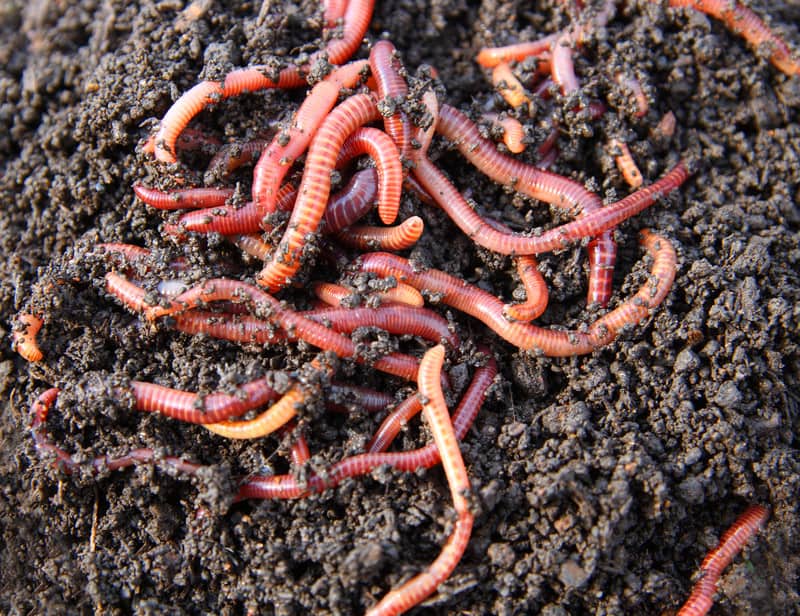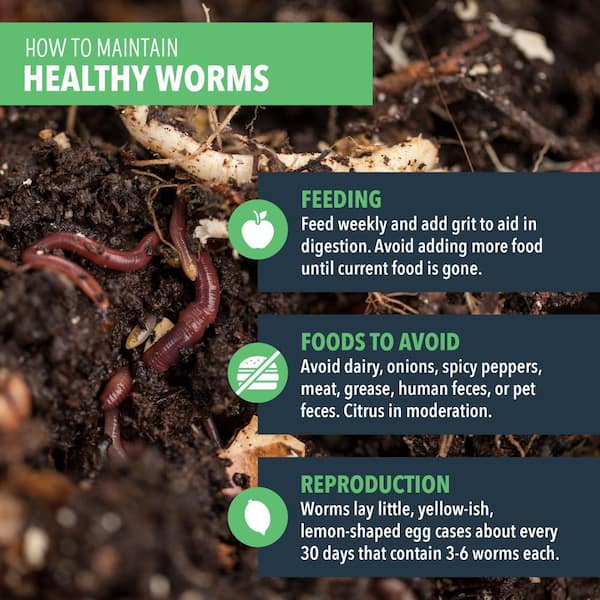All About North Carolina Worms
All About North Carolina Worms
Blog Article
The smart Trick of North Carolina Worms That Nobody is Talking About
Table of ContentsThe Facts About North Carolina Worms UncoveredFacts About North Carolina Worms RevealedThe Definitive Guide to North Carolina WormsThe 45-Second Trick For North Carolina Worms
Instance: 1-gallon of worm spreadings to 4 gallons of potting mix. 1/2 mug in the bottom of the planting hole for smaller sized plants. 1 mug for larger plants.
The addition of tea can also add boosted microbial biomass to your dirt. You can always side-dress your plants with worm castings at any moment. Simply keep in mind, the microorganisms will certainly die if exposed to UV rays (Sunlight), so be sure to cover the spreadings with an inch or two of dirt.
This frustrated them for years until the screening techniques ended up being much better. It would obtain far better(with even more castings), degree off, and after that decline. Also numerous worm spreadings would speed up the growth to a speed that the plant can not recuperate from.
North Carolina Worms for Beginners
I have expounded the virtues of worm castings for concerning 2000 words. Worm castings are no various. It takes time to develop quality worm spreadings.
You can purchase them which causes number 2. Worm castings absolutely cost more than chemical plant foods. Worm spreadings are on the more affordable end of natural plant foods. You will have to determine what is much more vital. It is easy to create little quantities of worm castings. (50 gallons each year) It is a much harder and really costly investment to generate big amounts of worm spreadings (Where to buy worms in NC).

Creating a healthy dirt might be the biggest advantage of worm castings. Healthy dirt was gone over and exactly how essential this has actually ended up being to everybody. The leading ten advantages of worm spreadings were likewise presented. We reviewed worm castings NPK and additionally the appropriate nutrient analysis that must relate to worm spreadings.
Some Of North Carolina Worms
We chatted about some of the drawbacks linked with worm castings. I covered a lot of material in this post.
The vertical burrows are usually open, although the worms top the leading with deposit and waste matter. Origins require oxygen for their development, whereas they generate carbon dioxide that requires to leave the dirt.
Earthworms increase porosity by two systems: (1) by creating long-term burrows, and (2) by enhancing dirt aggregation. Gathering is improved by the mixing of dirt and raw material in the earthworms' guts. Lake Rhodhiss Bait. These extremely secure aggregates are deposited by some earthworms in their burrows, and by others at the surface area of the soil


In an additional research, earthworms were approximated to consume 4 to 10 percent of the leading 6 inches of the dirt yearly. Soil compaction minimizes the porosity of the soil.
The Main Principles Of North Carolina Worms
Regular earthworm populaces can conveniently consume 2 lots of dry matter per acre per year, partly absorbing and blending it with dirt. The value of earthworms to blend surface residue with dirt comes to be extremely clear in soils that do not have any kind of earthworms. The majority of our Pennsylvania soils contend the very least some earthworms, and the impact of their complete lack, consequently, can not be kept in mind.
(https://artistecard.com/northcarolinaworms)In these soils, the development of topsoil with practical organic issue material did not take place, resulting in inadequate crop growth. As soon as the cause was developed, the federal government of the Netherlands began a campaign to present earthworms. After the intro of the earthworms, a dark topsoil layer was created, and plant development raised substantially.
They live mainly from partially broken down organic matter that is already integrated in the dirt. They consume their means via the dirt, creating horizontal burrows that they load with their waste matter. These species ingest big amounts of dirt that they mix with absorbed plant residue in their digestive tracts. or anecic species reside in irreversible vertical burrows that can be 5 or 6 feet deep.
These types consume considerable amounts of dirt that they mix with absorbed residue in their digestive tracts. Their excrement is largely deposited at the surface area of the soil.
Report this page